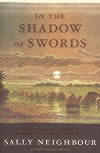 This is a must read, especially for Australians. Four Corners Journalist Sally Neighbour has done us all a favour with her balanced and superbly detailed study of terrorism and its roots.
This is a must read, especially for Australians. Four Corners Journalist Sally Neighbour has done us all a favour with her balanced and superbly detailed study of terrorism and its roots.In The Shadow of Swords for the most part concentrates on terror groups in Southeast Asia (this also includes operatives active in Australia), most notably Jemaah Islamiyah (the terms means Islamic Community).
For those confused by why Bali was targeted, and why the terrorists who carried out those attacked jumped for joy at the number of Westerners killed, Sally Neighbour provides an instructive history of Indonesian politics and religion.
Long a colony of the Dutch, Indonesia threw off its colonial shackles after the Second World War. One of the movements at this time was called Darul Islam, translated as Abode of Islam. This group was opposed to the secular Indonesia that emerged with independence, and wanted a more Islamic state.
Thus there has long been an anti-secular movement in Indonesia. Fast forward to today. Add Osama bin Laden’s narrative of oppressed and downtrodden Muslims the world over and you get Jemaah Isamiyah. Stir in a few absolutely crazy, murderous nutcases, with no scruples whatsoever, and you know the result: the Bali bombings.
Sally Neighbour doesn’t aim to provide readers with one simple, explain all reason for the actions of these terrorists. Wisely, she shows that what is driving Islamic terror is a disparate and unruly mix of ideology, history, religion, and downright murderous craziness.
Indeed, what can explain the actions of someone like Jack Roche, the only Australian put behind bars for attempting to stage an act of terror? He was an Englishman who migrated to Australia. Can there be anyone more unlikely to convert to Islam and commit to performing armed jihad? He was a former alcoholic with a couple of failed marriages behind him. Maybe some people are just so vulnerable they’ll look for absolutely anything to give their life meaning.
I’ve always felt that we have an extremely poor grasp of what is happening in the terrorist world. It’s like we’ve been suddenly woken from our slumbers, while these mad bomb makers have been busy all through the night. While terrorists seethe with anger at the perceived crimes of the West, we carry on with our daily lives cheerfully oblivious. When Western leaders say we should defy the terrorists by going on with our daily lives, it seems an entirely inappropriate response. We should all be switched on to what’s happening, what the mindset of these people is, what’s driving them.
A perfect example of how far behind the eight ball we are: three times Jack Roche called ASIO, trying to tip them off. The second time he told them he was off to Indonesia to have a meeting with Abu Bakar Bashir! The third time he left a message with ASIO. No one returned his call. You have to wonder, don’t you? It’s quite obvious that our agencies and politicians don’t really have a clue. Like, why did the fact that the London Bombings were carried out by British nationals come as such a shock?
And what of Australia’s famed close relationship with America. When the terrorist Jabarah was caught by the Americans, and confessed all in May 2002, none of the relevant information was relayed to Australian agencies. Some of the key information that would have been enormously helpful to Australians was the tip-off that Hambali was now planning to bomb nightclubs.
From the book:
‘This information would have been of enormous interest to Australian investigators, if only they had known. But not only was Australia refused access to Jabarah personally, it was also denied the benefit of the treasure trove of facts he had provided. Jabarah’s information was distributed widely throughout Southeast Asia in mid-2002 – but not to Australia.’
The FBI claimed the info in the report did not concern Australia, but Australian intelligence insiders said, ‘The FBI is the most hopeless organisation in the world when it comes to information management…They probably didn’t even know where Australia was.’
Sally Neighbour finishes up her book with a glum but realistic assessment. The notion of a war on terror is entirely inappropriate, because it’s not really a war in the conventional sense, and it is misleading the public by letting them think that it can be won. It can’t be won. We are stuck with it.
The bombings and killings will continue. When a ‘martyr’ bomber dies, they see it as a political, spiritual and religious win. How do we in the West win against this mindset? How committed to spreading democracy and freedom are we? Not very, I should say. How many people would be willing to go and fight in Iraq to spread Western democracy? You know the answer.
We will continue to be inward looking and solipsistic. When the next bomb goes off, there will be big words about beating terrorists, but we will still be impotent and confused.
Unfortunately, terror, indiscriminate murder, is something we have to live with. But reaching out for understanding about why this is happening is a step in the right direction.
Sally Neighbour’s book is an indispensable guide for Australians trying to learn more.
No comments:
Post a Comment